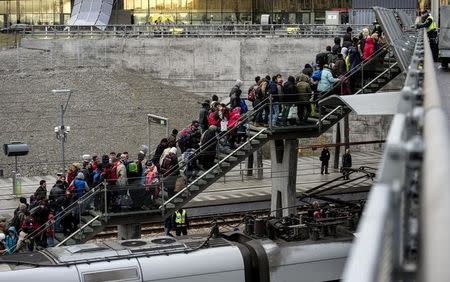Danish PM seeks emergency law to reject asylum seekers at borders

COPENHAGEN (Reuters) - The Danish government on Tuesday proposed adoption of a law that would enable police to reject asylum seekers at the borders in times of crisis such as that in 2015 when thousands of migrants sought to enter the country. Denmark has already implemented tough immigration policies since a heavy influx of refugees last year, including border controls and a "jewellery bill", allowing the police to confiscate refugees' valuables. The government seeks to create a statutory power to reject asylum-seekers at the border to prevent a recurrence of the refugee crisis in September last year, the Ministry for Immigration, Integration and Housing said. "We are getting the flow of refugees under control. But we cannot relax. The pressure on Europe and Denmark could intensify again," it said in a report. Last year over one million migrants and refugees crossed into European countries, putting pressure on the Dublin rules under which the member state where asylum seekers first apply for protection is responsible for examining their claims. The proposal is part of the government's political and economic plan for the next 9 years intended to spark growth, create jobs and trim welfare provisions. Inspired by law-making in neighbouring Nordic country Norway, where a similar statutory power was adopted in June this year, the Danish government said it needed to prepare for a situation where the Dublin regulation would cease to work. "The Dublin cooperation is working today and the pressure is off. But the situation can change," the ministry wrote. The number of refugees attempting to enter Denmark has declined since its peak of 21.300 applicants in 2015 down to 5,305 registered in the first seven months of this year, according to data on the ministry's website. The proposal has yet to be adopted by the parliament, where the minority government's Liberal Party holds only 34 out of 179 seats and depends on three other parties to pass laws. (Reporting by Nikolaj Skydsgaard; Editing by Richard Balmforth)

